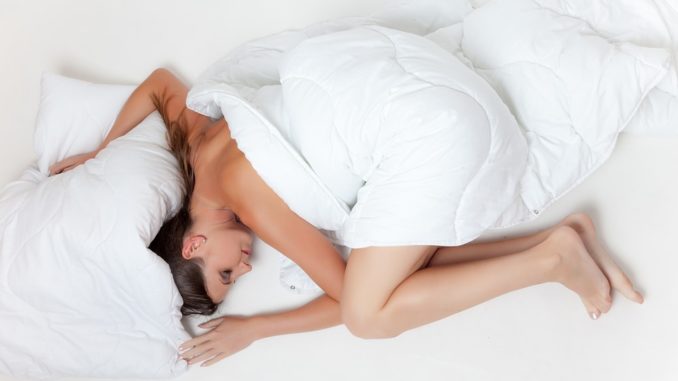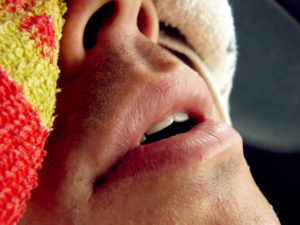
Sleep is one of the most important factors involved in metabolism. How much you sleep has a direct impact on your weight, energy levels, appetite, and overall health.
Sleep deprivation puts you at risk for depression, diabetes, heart disease, high blood pressure, obesity, and premature death. Yet, more than a third of Americans don’t get enough sleep.
Why Sleep Deprivation Could Be Making You Fat
About 70 million U.S. adults are sleep deprived. This increases their risk of work-related injuries, fatigue, poor immunity, and migraines. Sleep deprivation has been linked to high stress and low life satisfaction.
What most people don’t know is that lack of sleep may also lead to weight gain. It’s actually one of the most overlooked causes of obesity and chronic illnesses.
When you don’t get enough sleep, your stress levels increase. Cortisol production goes through the roof, causing a chain reaction of biochemical processes.
Lack of Sleep Affects The Metabolism
First of all, your body enters the fight-or-flight mode and begins to store calories for energy. As a result, your metabolism slows down. Sleep deprivation also affects the hormones responsible for hunger and satiety, such as leptin, ghrelin, and insulin. It may also lower your testosterone and growth hormone levels, which further increases the risk of weight gain.
Lack of sleep impacts your metabolism as well as your appetite. Due to the high cortisol levels, you may feel hungry and crave sugar. The less you sleep, the more likely you are to make bad food choices.
Sleep Deprivation Causes Slower Recovery From Exercise
Additionally, sleep deprivation may cause muscle loss and slow down recovery from exercise. This leads to a slower metabolism, fatigue, weakness, and low energy. All these factors combined cause weight gain and metabolic disorders.
Simple Ways to Improve Your Sleep
Simple lifestyle changes, such as setting a sleep routine, cutting back on coffee, and drinking herbal teas, can help you get better rest. Try to fall sleep and wake up at the same time every day.
Make sure your bedroom has a dark, cool atmosphere that encourages relaxation. Think of it as your sleeping sanctuary. Do not eat, work, or study in the bedroom. Set the temperature at 60-67 degrees.
Avoid Electronic Devices Before Bedtime
For better sleep, avoid playing video games, watching TV, or surfing the web on your smartphone before bedtime. Electronic devices affect the sleep cycle and lower melatonin production.
Use a mattress that supports your spine and molds to the shape of your body. If you wake up tired or stiff, replace your old mattress. The same goes for your pillows, which should support your head and neck without causing any discomfort.
The Best Snacks Before Bedtime
If you’re hungry at night, have a light high protein snack, such as Greek yogurt or low fat cheese. Unlike fats and carbs, protein will not be stored as fat. Your body will use it to repair damaged tissues and build muscle during sleep.
Also, limit carb-rich meals and fatty foods before bedtime because they are more likely to be turned into fat due to the excess calories.
Alcohol and Caffeine Can Affect Your Sleep Cycles
Drink a cup of valerian or chamomile tea to calm down. Because of their high caffeine content, coffee and chocolate can affect your sleep. Avoid them after 2 PM, especially if you’re sensitive to caffeine. Alcohol can interfere with REM, the second half of the sleep cycle, so apply limits to your alcohol intake.







Such an informative post.I really like your post.Thanks for sharing this useful information with us.